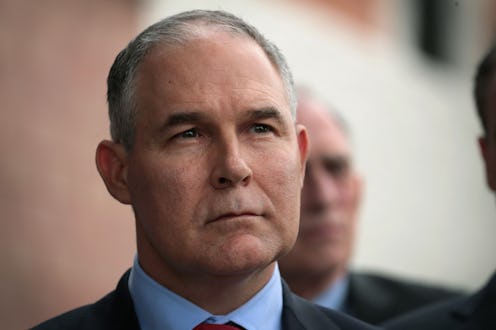
Scott Pruitt, head of the Environmental Protection Agency, dismissed several scientists from the EPA review board, reportedly to make way for industry insiders. According to the Guardian, critics say the move could potentially distort the agency's impartiality on climate change, as well as threaten scientific research on climate change and pollution. Prior to this, the New York Times reported that at least five members had been removed from their positions after carrying out a three-year term.
A spokesman for Pruitt explained the decision behind the removal as an effort from the EPA to include opinions from the industries that the agency regulates. According to the Times, spokesman J.P. Freire said that Pruitt justified the reason to keep industry figures on the board as an attempt to "understand the impact of regulations on the regulated community."
Critics of the removal, however, see this as antithetical to the mission of the agency which involves understanding the man-made impact on the climate. The chair of the board, Deborah Swackhamer, told the Guardian that the board had been "eviscerated" in the process. She said that she saw no reason as to why these removals took place, as the members were not affiliated with Barack Obama's administration, but were simply academicians.
Inclusion seems to be the main rationale for dismissing the previous members and bringing on industry figures. While representation from the corporate world is not exactly a problem (industrial knowledge can be studied by scientists), the issue appears to be more about the potential lack of impartiality from Pruitt.
The decision to remove these members is significant coming from Pruitt, who, prior to becoming the head of the EPA, had sued the agency 13 times as Oklahoma's attorney general. Pruitt is the same person who denied that carbon dioxide causes global warming. In a shocking statement to CNBC, Pruitt said, "I think that measuring with precision human activity on the climate is something very challenging to do and there’s tremendous disagreement about the degree of impact, so no, I would not agree that [carbon dioxide] is a primary contributor to the global warming that we see."
Perhaps none of this is surprising. Recently, Pruitt vocalized his intention to shake things up at the agency. Pruitt had said, "There are a lot of changes that need to take place at my agency to restore the rule of law and federalism." Given such statements from Pruitt, along with his extensive history of attacking the EPA, the qualms being raised by critics and those invested in advancing scientific research on climate must be heeded — and soon.